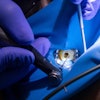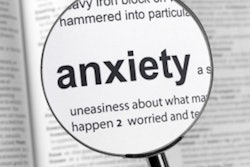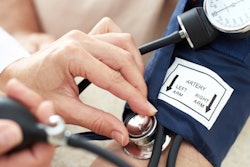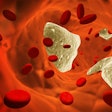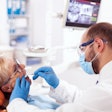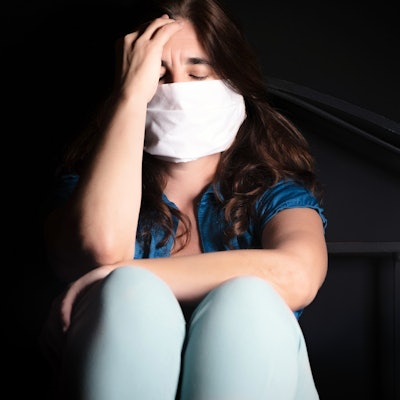
It's no secret that stress can cause high blood pressure. For many patients, going to the dental office is stressful. Add in the COVID-19 pandemic, and it's all the more important for dental professionals to help manage patient stress, according to a letter published in the Journal of Dental Sciences.
In the letter, researchers discussed the importance of managing white coat hypertension (WCHT), a phenomenon in which patients with typically stable blood pressure enter a clinical setting like a dental office and experience blood pressure levels above the normal range. The letter's authors expressed concern that white coat hypertension could put patients at a higher risk of experiencing cardiovascular events or even severe COVID-19, since hypertension may increase the severity of SARS-CoV-2 infection.
"WCHT management, including stress and anxiety reduction, should be taken into account to avoid the development of coronary heart disease," wrote the authors, led by Kaveh Nasiri, an independent researcher from Essen, Germany (Journal of Dental Sciences, October 5, 2022.)
In medical and dental settings, a person's blood pressure can be more than 140/90 mmHg compared with a home-measured reading of less than 135/80 mmHg. Therefore, managing WCHT should be prioritized, urge the authors.
Previous studies have shown that about 18% of patients experience WCHT, and these patients have a high potential for asymptomatic cardiovascular damage and are more likely to develop persistent hypertension.
WCHT shows associations with left ventricular diastolic dysfunction, left atrium enlargement, carotid intima-media thickening and plaque, increased urinary protein excretion, and silent cerebral infarction compared with normotension. Therefore, WCHT may potentially damage other organs if left untreated, the authors cautioned.
Further, hypertension creates a greater risk of developing severe COVID-19, the authors noted. Previous studies have confirmed that incidences of intensive care treatment are higher in patients with hypertension compared to patients without elevated blood pressure.
What can you do to help your patients whose blood pressure rises at the dental office? The authors suggest using teledentistry as a screening tool to help detect whether patients are prone to WHCT before an appointment.
"Telemedicine, including teledentistry, is a safe and effective method to prevent the spread of the COVID-19 pandemic and help detect WCHT through teleconsultation," the authors wrote. "WCHT also exists in teleconsultation and is easy to detect, so its side effects and health expenses can be avoided."
By using teledentistry, dental professionals can help patients with WCHT manage their stress and anxiety before and during dental appointments.
"In this respect, the correct strategy of a clinician can have a decisive role in screening, diagnosing, and managing WCHT," Nasiri and colleagues concluded.


